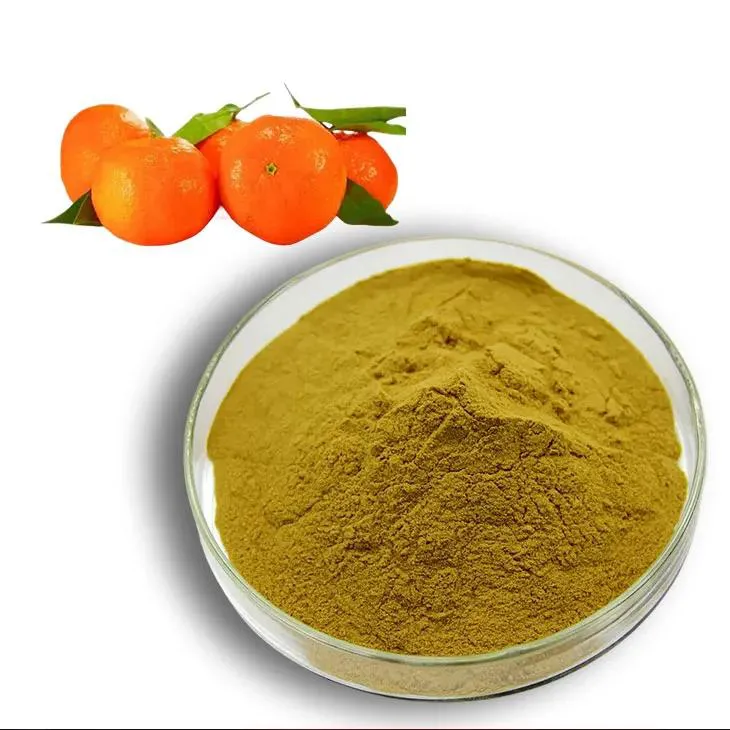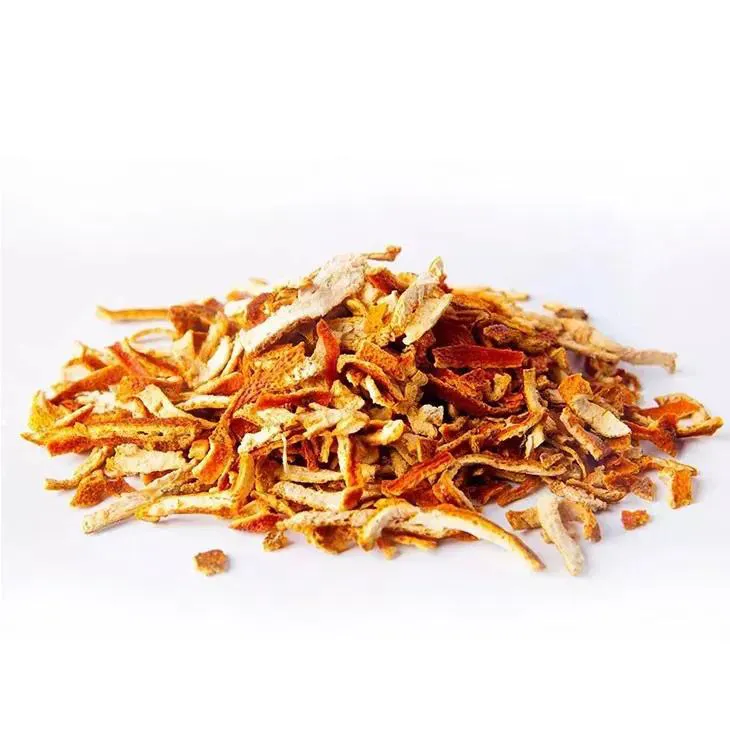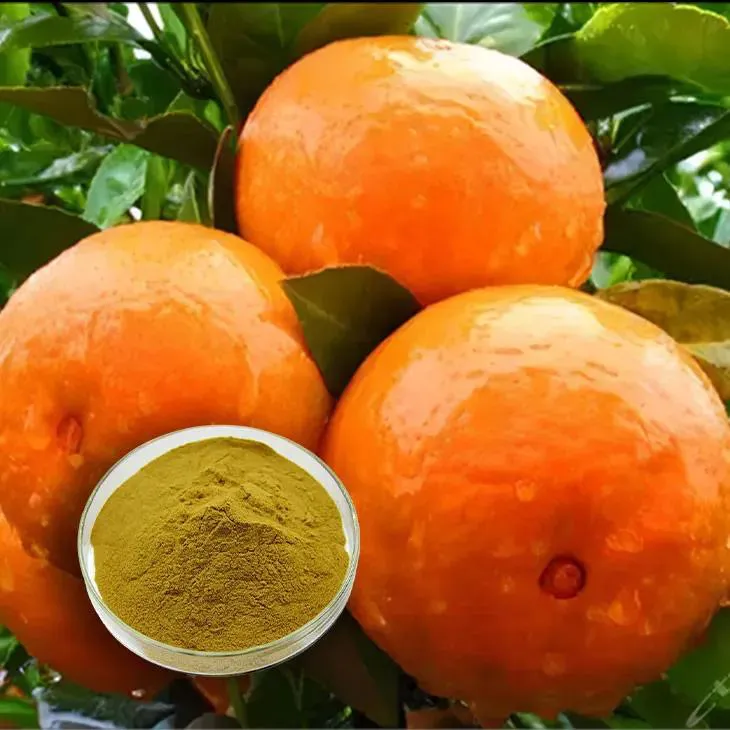- 0086-571-85302990
- sales@greenskybio.com
How to Start a Business in the Lucrative Citrus Bioflavonoids Industry.
2024-12-11

1. Introduction to the Citrus Bioflavonoids Industry
The citrus bioflavonoids industry has emerged as a highly profitable sector in recent years. This growth is largely due to the increasing consumer awareness and preference for natural compounds in the pursuit of wellness. Citrus bioflavonoids are a group of plant - based chemicals found in citrus fruits such as oranges, lemons, and grapefruits. They are known for their antioxidant, anti - inflammatory, and other health - promoting properties.
With the growing trend towards natural and functional ingredients in the food, supplement, and pharmaceutical industries, the demand for citrus bioflavonoids is on the rise. However, entering this industry for business requires careful planning and consideration of various factors.

2. Identifying High - Market - Value Citrus Bioflavonoid Variants
2.1 Research on Different Variants The first step in starting a business in the citrus bioflavonoids industry is to identify the right variants with high market value. There are several types of citrus bioflavonoids, including Hesperidin, naringin, and rutin. Each variant has its own unique properties and potential applications. For example, Hesperidin is often associated with cardiovascular health, while naringin has been studied for its anti - obesity and anti - diabetic effects.
2.2 Market Analysis Conduct in - depth market analysis to understand the current and future demand for different citrus bioflavonoid variants. Consider factors such as consumer trends, emerging health concerns, and the competitive landscape. For instance, if there is a growing trend towards products for joint health, variants with anti - inflammatory properties may be more in demand.
2.3 Quality and Purity Considerations When identifying the variants, also pay attention to the quality and purity requirements. High - quality, pure citrus bioflavonoids are more likely to be accepted by the market. This may involve sourcing from reliable suppliers or developing in - house purification methods.

3. Collaborating with Research Institutions for Product Development
3.1 The Importance of Research Collaboration Collaborating with research institutions is crucial for successful product development in the citrus bioflavonoids industry. These institutions have the expertise, equipment, and resources to conduct in - depth research on the properties, extraction methods, and potential applications of citrus bioflavonoids.
3.2 Finding the Right Research Partners Look for research institutions with a track record in natural product research, especially in the field of citrus bioflavonoids. Consider factors such as their research facilities, the qualifications of their researchers, and their previous collaborations. For example, universities with strong agricultural or pharmaceutical research departments may be good candidates.
3.3 Defining the Research Goals Clearly define the research goals in the collaboration. This could include developing new extraction techniques to improve the yield and purity of citrus bioflavonoids, exploring new applications in the health and wellness sector, or conducting safety and efficacy studies for potential products.
3.4 Intellectual Property and Licensing Address issues related to intellectual property and licensing from the beginning. Determine who will own the intellectual property rights for any new discoveries or inventions resulting from the collaboration. This is important to protect the business interests of both parties.

4. Production: Adhering to Strict Regulatory Standards
4.1 Understanding Regulatory Requirements The production of citrus bioflavonoids is subject to strict regulatory standards, especially if the products are intended for human consumption in the form of food supplements or pharmaceuticals. Familiarize yourself with the relevant regulations at the local, national, and international levels. For example, in the United States, the Food and Drug Administration (FDA) has specific requirements for the safety, labeling, and manufacturing processes of dietary supplements.
4.2 Good Manufacturing Practice (GMP) Implement Good Manufacturing Practice (GMP) in the production facility. GMP ensures that the products are consistently produced and controlled according to quality standards. This includes aspects such as proper handling of raw materials, clean and hygienic production environment, and accurate record - keeping.
4.3 Quality Control and Testing Set up a comprehensive quality control and testing system. Regularly test the citrus bioflavonoids for purity, potency, and contaminants. This may involve using advanced analytical techniques such as high - performance liquid chromatography (HPLC) to ensure that the products meet the required specifications.
4.4 Certification and Compliance Obtain relevant certifications to demonstrate compliance with regulatory standards. Certifications such as ISO 9001 (quality management) and ISO 22000 (food safety management) can enhance the credibility of the business. Additionally, for products intended for export, ensure compliance with the regulations of the target markets.
5. Marketing: Leveraging SEO and Social Proof
5.1 SEO for Citrus Bioflavonoid - Related Products In the highly competitive citrus bioflavonoids market, using Search Engine Optimization (SEO) techniques is essential for increasing the visibility of your products. Start by optimizing your website's meta - tags with relevant keywords such as "citrus bioflavonoids," "natural antioxidants," and specific variant names like "Hesperidin supplements."
5.2 Content Marketing Develop high - quality content related to citrus bioflavonoids on your website. This could include blog posts about the health benefits, research updates, and product usage instructions. Content marketing not only helps with SEO but also educates potential customers about your products.
5.3 Social Media Marketing Leverage social media platforms to promote your citrus bioflavonoid products. Share engaging content, run targeted ad campaigns, and interact with your followers. Platforms like Facebook, Instagram, and Twitter can be effective for reaching a wide audience interested in health and wellness products.
5.4 Social Proof: Customer Testimonials Customer testimonials are a powerful form of social proof in the citrus bioflavonoids market. Encourage satisfied customers to leave reviews and testimonials on your website or social media pages. Positive feedback from customers can significantly boost your business credibility and attract new customers.
5.5 Influencer Marketing Collaborate with influencers in the health and wellness niche. These influencers can promote your citrus bioflavonoid products to their followers, who are likely to be interested in natural health products. Influencer marketing can help increase brand awareness and drive sales.
6. Conclusion
Starting a business in the lucrative citrus bioflavonoids industry requires a comprehensive approach. By identifying high - market - value variants, collaborating with research institutions, adhering to strict regulatory standards in production, and implementing effective marketing strategies, entrepreneurs can position themselves for success in this growing industry. However, it is also important to stay updated on the latest research, market trends, and regulatory changes to remain competitive in the long - term.
FAQ:
What are the key citrus bioflavonoid variants with high market value?
Some of the key citrus bioflavonoid variants with high market value include hesperidin, naringin, and Quercetin. Hesperidin is known for its potential health benefits such as antioxidant and anti - inflammatory properties. Naringin has been studied for its role in improving cardiovascular health. Quercetin is also a well - known bioflavonoid with antioxidant, anti - allergic and anti - inflammatory effects, which are highly valued in the market.
Why is it important to collaborate with research institutions for product development?
Collaborating with research institutions for product development is crucial. Research institutions have the expertise, advanced equipment and scientific knowledge. They can conduct in - depth studies on citrus bioflavonoids, such as exploring new extraction methods, identifying more effective bioactive components, and ensuring the safety and efficacy of products. This helps in creating high - quality, innovative products that can stand out in the market.
What are the strict regulatory standards in the production of citrus bioflavonoid products?
The regulatory standards in the production of citrus bioflavonoid products vary by region. Generally, they include requirements for raw material sourcing, ensuring that the citrus fruits are of good quality and free from contaminants. In the production process, good manufacturing practices (GMP) must be followed, which cover aspects like proper handling of equipment, clean production environment, and accurate labeling of products. There are also regulations regarding the purity and potency of the bioflavonoids in the final products.
How can SEO techniques help in marketing citrus bioflavonoid products?
SEO techniques can be very helpful in marketing citrus bioflavonoid products. By optimizing website meta - tags with relevant keywords like citrus bioflavonoids", "health benefits of citrus bioflavonoids", etc., the website can rank higher in search engine results. This increases the visibility of the products to potential customers. When people search for information related to citrus bioflavonoids, the business website is more likely to be shown, leading to more traffic and potentially more sales.
Why is social proof important in the citrus bioflavonoid business?
Social proof is important in the citrus bioflavonoid business because it builds trust. In a competitive market, customers are more likely to believe in the effectiveness and quality of a product if they see positive customer testimonials. Social proof gives the impression that other people have already had a good experience with the product, which can influence potential customers' purchasing decisions.
Related literature
- "The Bioactivity and Potential Health Benefits of Citrus Bioflavonoids"
- "Citrus Bioflavonoids: Production, Extraction and Applications"
- "Market Trends of Citrus Bioflavonoid - Based Products"
- ▶ Hesperidin
- ▶ Citrus Bioflavonoids
- ▶ Plant Extract
- ▶ lycopene
- ▶ Diosmin
- ▶ Grape seed extract
- ▶ Sea buckthorn Juice Powder
- ▶ Fruit Juice Powder
- ▶ Hops Extract
- ▶ Artichoke Extract
- ▶ Mushroom extract
- ▶ Astaxanthin
- ▶ Green Tea Extract
- ▶ Curcumin
- ▶ Horse Chestnut Extract
- ▶ Other Product
- ▶ Boswellia Serrata Extract
- ▶ Resveratrol
- ▶ Marigold Extract
- ▶ Grape Leaf Extract
- ▶ New Product
- ▶ Aminolevulinic acid
- ▶ Cranberry Extract
- ▶ Red Yeast Rice
- ▶ Red Wine Extract
-
Elderberry Extract
2024-12-11
-
Hawthorn Extract
2024-12-11
-
Acai Berry Extract
2024-12-11
-
Black Pepper Extract
2024-12-11
-
Scutellaria Extract
2024-12-11
-
Green Tea Extract
2024-12-11
-
Carrageenan Extract Powder
2024-12-11
-
Garcinia Cambogia Extract
2024-12-11
-
White mustard seed extract
2024-12-11
-
Horse Chestnut Extract
2024-12-11





















